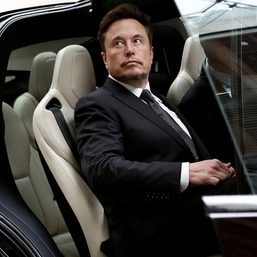SUMMARY
This is AI generated summarization, which may have errors. For context, always refer to the full article.

MANILA, Philippines – Philippine poll chief George Garcia sounded the alarm on the abuse of artificial intelligence (AI) technology, and is now urging his colleagues in the Commission on Elections (Comelec) to ban the use of deepfake videos in campaign materials for the 2025 elections.
On Tuesday, May 28, Garcia wrote to the 7-member Comelec en banc, which he is a part of, asking it to craft guidelines that would prohibit the use of “deepfake” materials in campaign paraphernalia.
He noted that even President Ferdinand Marcos Jr. fell victim to a deepfake material recently.
“The abuse of AI technology and ‘deepfake’ videos undermines the integrity of elections and the credibility of public officials, candidates, and election management authorities,” Garcia said.
“This defeats the very purpose of a campaign, which is to fully and truthfully inform the voting public about the elections and the candidates,” he added.

It remains to be seen how exactly the Comelec will ramp up efforts to go after purveyors of disinformation online, which has been a big issue in the last decade or so, as the role of social media in the success or failure of election campaigns grew larger.
Fact-checking coalition Tsek.PH, for example, noted that Marcos was the biggest beneficiary of poll-related disinformation in the run-up to the 2022 elections, while his rival former vice president Leni Robredo was the biggest victim.
In the 2022 presidential election, the Comelec introduced further regulations on social media campaigning, such as banning the practice of microtargeting of voters, compelling candidates to register their social media pages, and offering a virtual platform for candidates to woo voters, in an effort to level the playing field.
These efforts, however, yielded little success in discouraging bad actors from engaging in disinformation campaigns, and it is unclear if anyone was actually punished for microtargeting voters or failing to register their social media accounts with the Comelec.
The poll body is also stretched too thin during election season, and the commission usually ends up focusing on the logistical aspect of the vote once the polls draw closer. – Rappler.com
Add a comment
How does this make you feel?










There are no comments yet. Add your comment to start the conversation.